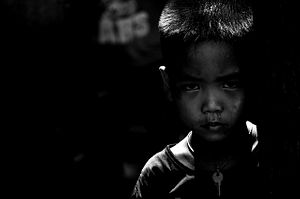A Chinese online celebrity has been caught in a scandal where he is suspected of being a pedophile. Although the incident is still ongoing without legal confirmation, it once again warns Chinese parents of Beijing’s lack of related laws governing the issue as well as the insufficient focus on sex education more broadly.
The young online celebrity, born in the 1990s, gained his fame on Chinese social media by posting self-made sarcastic videos. Recently, on July 16, the celebrity was accused by one of his online followers as being a pedophile, based on the evidence that 1) the celebrity has followed hundreds of other suspected pedophiles’ social accounts and made “dirty” comments; 2) the celebrity is a VIP member of multiple related websites; and, most critically, 3) the celebrity himself established a website to sell suspicious videos and other related material of young boys (the website has stopped working now).
In an urgent response, the celebrity denied that he is a pedophile and claimed that he didn’t break any laws and had reported this to the police as slander. However, he didn’t deny his fondness for young boys and he apologized for his “improper and vulgar comments” online.
So far, no government organ or other related authority has adopted any legal measures for or against the celebrity. The incident is quite likely to pass without event, like many other public scandals in China. Regardless, it has already deeply alarmed the Chinese public, and Chinese parents in particular, in many ways.
On the one hand, the scandal is one of the few chances for the Chinese public to openly discuss or even seriously learn about pedophilia. To many conservative Chinese people, this would be quite a steep learning curve. As many Chinese observers might know, the topic of sex itself is still a taboo in China’s mainstream media. Even the subject of professional sex education can trigger debate. For example, recently, a primary school sex-education textbook depicting sexual organs, positions, and gay couples drew harsh condemnation from some conservative circles.
However, many experts also point out that it is the very lack of sex education that brings about ignorance and negligence of the topic of sexual abuse directed against children in China in the first place.
On the other hand, Chinese parents realize, once again, the sheer lack of laws in China against sex crime toward children. As many Chinese lawyers mentioned, China does have laws against sex crime, but sex offenses toward children has never be singled out, which makes it harder to clampdown on sex offenses toward children in China.
In terms of child pornography, for example, the U.S. federal law “prohibits the production, distribution, importation, reception, or possession of any image of child pornography. A violation of federal child pornography laws is a serious crime, and convicted offenders face fines severe statutory penalties.”
Notably, the U.S. federal law says: “the legal definition of sexually explicit conduct does not require that an image depict a child engaging in sexual activity. A picture of a naked child may constitute illegal child pornography if it is sufficiently sexually suggestive.”
In contrast, the loophole in China’s law is obvious. The following article is the only related item in China’s Criminal Law:
Article 363. Those producing, reproducing, publishing, selling, or disseminating obscene materials with the purpose of making profits are to be sentenced to three years or fewer in prison or put under criminal detention or surveillance, in addition to paying a fine. If the case is serious, they are to be sentenced to three to 10 years in prison in addition to having to pay a fine. If the case is especially serious, they are to be sentenced to 10 years or more in prison or given life sentence, in addition to a fine or confiscation of property.
Charlotte Gao holds a MA degree in Asian Studies. Her research interests center around East Asian topics. She has worked in the past as a news editor, reporter, and writer for multiple traditional, online, and new media outlets.

































